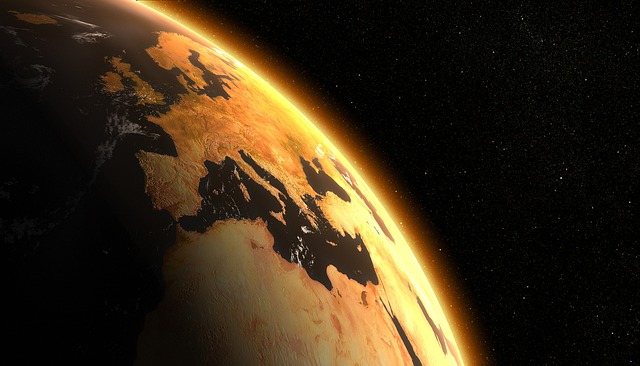No products in the cart.
How Does Climate Change Affect Coral Reefs ?
How Does Climate Change Affect Coral Reefs ?
Coral reefs, complex and diverse ecosystems, are facing significant threats due to climate change. The warming of the atmosphere and oceans, as well as other associated factors, have detrimental effects on these fragile marine environments. This article explores the various ways climate change impacts coral reefs and emphasizes the urgent need for conservation efforts to protect these invaluable ecosystems.
Coral Bleaching and Infectious Diseases
Climate change, primarily driven by human-induced greenhouse gas emissions, has resulted in increased instances of coral bleaching and infectious diseases. Rising ocean temperatures stress the coral organisms, causing them to expel the symbiotic algae they rely on for nutrition and color. Without the algae, corals turn pale or white, a phenomenon known as bleaching. Bleached corals are more susceptible to diseases, leading to further decline in coral cover and reef health.
Ocean Acidification and Altered Seawater Chemistry
Seawater’s enhanced absorption of CO2, leading to ocean acidification, represents a major risk to organisms that construct reefs.
As carbon dioxide dissolves in the ocean, it alters the chemistry of seawater, making it more acidic. This increased acidity inhibits coral growth and compromises their structural integrity. Furthermore, acidification affects the availability of carbonate ions, which are crucial for corals to build their calcium carbonate skeletons.
Rising Sea Levels and Sedimentation
Climate change leads to rising sea levels, which have detrimental effects on coral reefs. Increased sea levels result in sedimentation and smothering of corals, obstructing their access to sunlight and limiting their ability to grow and thrive. Sedimentation also affects water clarity, reducing light availability for corals and other reef organisms.
Storm Patterns and Altered Ocean Circulation
Climate change influences storm patterns, making them stronger and more frequent. These storms pose a direct threat to coral reefs, causing physical damage and fragmenting coral colonies. Additionally, increased precipitation associated with changing weather patterns contributes to freshwater runoff, leading to algal blooms. Algal blooms can reduce light availability, hampering the photosynthesis process of corals and other marine organisms.
Disrupted Connectivity and Coral Larvae Dispersal
Altered ocean currents disrupt the natural connectivity of coral reefs. Changes in temperature patterns and ocean circulation hinder the dispersal of coral larvae, which are essential for the survival and growth of reefs. The disruption of larval dispersal affects the genetic diversity and resilience of coral populations, making them more susceptible to environmental stressors.
Conservation Efforts:
Given the critical state of coral reefs, conservation efforts are crucial to mitigate the impacts of climate change and preserve these ecosystems. Individuals, communities, and governments can contribute to safeguarding coral reefs through various actions:
Reducing Carbon Footprint: Minimizing greenhouse gas emissions from daily activities such as driving, using energy-efficient appliances, and practicing the 3Rs (reduce, reuse, recycle) can help mitigate climate change
Minimizing Water Consumption and Printing: Conserving water and reducing unnecessary printing activities contribute to overall resource conservation.
Avoiding Chemical Usage: Responsible disposal of household chemicals and avoiding the use of lawn and garden chemicals help prevent pollution and protect water quality, indirectly benefiting coral reefs.
Choosing Sustainable Seafood: Selecting sustainably sourced seafood reduces the impact of overfishing and supports responsible fishing practices.
Following Reef Etiquette: When visiting coral reef areas, practicing responsible snorkeling and diving techniques, such as avoiding touching or damaging corals, helps protect the delicate ecosystem.
Participating in Beach Clean-up Activities: Engaging in beach clean-up activities reduces the amount of plastic and other debris that can harm coral reefs and marine life.
Conclusion:
Climate change poses a significant threat to coral reefs globally, impacting their health, biodiversity, and overall survival. The consequences include coral bleaching, infectious diseases, ocean acidification, rising sea levels, altered storm patterns, and disrupted ocean circulation. To protect and preserve these vital ecosystems, urgent action is required. Reducing greenhouse gas emissions, supporting global climate agreements, integrating sustainable practices into economic systems, and promoting responsible behavior are key steps towards mitigating the impacts of climate change on coral reefs. By safeguarding coral reefs, we not only protect their intrinsic value but also preserve the numerous ecosystem services they provide, benefiting both nature and human well-being.
Learn more about Globle worming !
Learn more about Greenhouse Effect !






Add Comment
You must be logged in to post a comment.